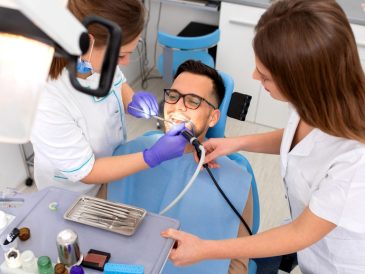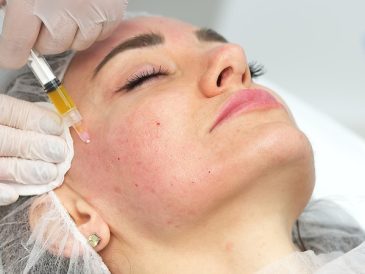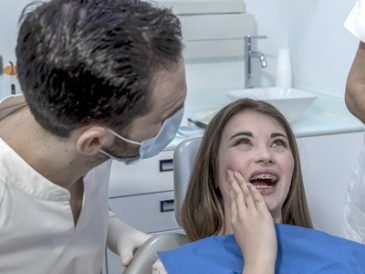Are you trying to figure out whether oral surgery or non-surgical dental procedures are best for your dental needs? Well, you’re not alone! Making this decision can seem daunting at first, especially with the diverse options available. Let’s look into the basics to help you make an informed choice.
First off, what exactly is the difference between these two? Oral surgery involves invasive surgical procedures on your teeth, gums, jaws, or mouth. It can include extractions, implants, jaw surgery, and more. On the other hand, non-surgical dental procedures are less invasive and focus on the upkeep and restoration of your teeth without the need for surgery.
The Pros and Cons of Oral Surgery
When faced with severe dental issues, oral surgery can seem like a lifesaver. However, it also comes with its pros and cons. Understanding these can help you weigh your options better.
Pros of Oral Surgery
-
Comprehensive Solutions: Oral surgery can tackle complex dental issues that non-surgical procedures cannot.
-
Permanent Fixes: Procedures like dental implants offer long-term solutions and can greatly enhance oral health.
-
Pain Relief: Surgeries aligning your jaws or extracting problematic teeth can relieve considerable pain.
Cons of Oral Surgery
-
Invasive: This form of surgery involves cutting tissue, which can lead to a longer recovery period.
-
It Cost More: It is generally more expensive due to the complexity involved.
-
Risks and Complications: As with any surgery, there’s always a risk of complications.
The Advantages and Drawbacks of Non-Surgical Dental Procedures
If oral surgery feels like a bit too much for you, non-surgical dental procedures might be the way to go. Here, we’ll explore the benefits and limitations of non-invasive approaches.
Advantages of Non-Surgical Procedures
-
Less Invasive: Procedures don’t require cuts or stitches, leading to quicker recovery.
-
Cost-effective: Generally less expensive compared to surgical alternatives.
-
Versatility: Handles a wide range of issues from cavities to teeth whitening.
Drawbacks of Non-Surgical Procedures
-
Non-Comprehensive: This may not be viable for complex dental issues.
-
Temporary Solutions: Often, they do not offer permanent fixes like their surgical counterparts.
-
Need for Maintenance: Many non-surgical solutions require regular maintenance and follow-up.
What to Consider When Choosing
Making a decision isn’t easy, so here are some things to think about before committing to either option.
-
The severity of the Issue: The nature of your dental problem can largely dictate your choice.
-
Consult Your Dentist: Dentists can provide you with a proper diagnosis and treatment recommendation.
-
Budget: Consider whether you can afford complex surgeries, both financially and in terms of recovery time.
-
Pain Tolerance: Everyone has a different threshold for pain; think about what you are comfortable enduring.
Common Oral Surgery Procedures
For a deeper understanding, let’s look at some common oral surgery procedures and when they might be necessary.
1. Tooth Extractions
Sometimes, a tooth cannot be saved due to decay or injury. Extraction becomes the best option to prevent further problems.
2. Dental Implants
If you’re missing teeth, improve your quality of life with dental implants as they mimic your natural tooth structure.
3. Corrective Jaw Surgery
Some people face misalignment in their jaws, causing discomfort. This surgery can improve functionality and appearance.
Popular Non-Surgical Dental Procedures
These procedures are typically easier on the wallet and are less invasive.
1. Teeth Whitening
Want a brighter smile? Teeth whitening is a fantastic option to improve your smile without surgery.
2. Fillings and Bonding
Address minor cavities or dental damage effortlessly with fillings or bonding techniques.
3. Orthodontics
Braces and aligners offer teeth straightening options without going under the knife.
4. Botox Treatment
Botox injections can help relax the muscles around the jaw, reducing tension and alleviating symptoms like jaw pain, headaches, and teeth grinding. In fact, botox can help with TMJ pain, making it a treatment option generally considered when other non-invasive methods, such as physical therapy or oral appliances, haven’t provided sufficient relief.
When to Opt for Surgery
Sometimes, only surgery can fix the issue at hand. Here are scenarios where you might opt for surgical solutions.
-
Chronic Pain: If you’re experiencing persistent pain that non-surgical options can’t resolve.
-
Misalignment: Extensive misalignment generally needs surgical intervention.
-
Advanced Decay or Infection: Sometimes decay or infection progresses to a point where surgery becomes necessary.
When Non-Surgical Options are Adequate
Sometimes, less is more. Here is when you should consider non-surgical alternatives.
-
Mild Dental Issues: If your issues are minor and can be resolved with less invasive measures.
-
Cosmetic Improvements: For surface-level changes like whitening or veneers, non-surgical options are perfect.
-
Preventive Care: Regular non-surgical treatments can maintain oral health to prevent future issues.
Innovative Solutions and Technological Advances
Technological advancements continue to revolutionize dental treatments, offering more options to choose from.
-
Digital Dentistry: Computer-aided design and manufacturing have improved the precision and fit of dental restorations.
-
Laser Treatments: Minimally invasive laser technologies provide effective solutions with reduced recovery time.
Making an Informed Decision
After considering the pros and cons, consulting with professionals, and understanding your needs, you should be able to make an educated decision. Remember, both oral surgery and non-surgical options have their place and purpose. For residents considering different dental options, it’s reassuring to know that services like oral surgery in Seattle provide comprehensive care tailored to individual needs.
Final Thoughts
In summary, whether you choose an oral surgery or a non-surgical dental procedure, the decision ultimately depends on your specific condition, personal preference, and professional advice. Regardless of your choice, staying informed and proactive in your dental care can significantly enhance your overall oral health.





